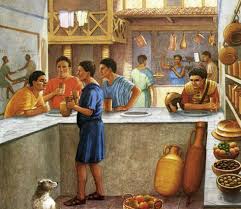Sanskrit was of little use in 700 CE for a farmer in Pataliputra to connect with a farmer near Kanchi
But it still helped unite the elites
Elites today in India primarily connect with English.
Yet what cemented the Empire's unity was the allegiance of the elites to Latin - the imperial tongue
A language that educated Britons were familiar with
Not outside the bounds of possibility. But not probable
As it does not quite command the awe that Latin commanded in the Roman Empire, or Sanskrit in the age of Harshavardhana
Not by virtue of being the language of the British Empire
But by virtue of being the language of the Industrial Revolution
Not many Germans knew English in 1930
Today most Germans speak it fluently
Both languages of major Empires
Today Spanish, outside Spain is spoken mainly by settlers in Spanish colonies (E.g. Argentina, Mexico)
And yes, the indigenous people have also taken to it in these parts
This shows that the appeal of English is not purely a consequence of Empire
It's something more than that
Hey...but English can uproot your civilization. It can render you deracinated
That's questionable..
Ram Manohar Lohia - firebrand radical, left winger
Hardly a traditionalist
Rabid opponent of English
Rajagopalachari - avowed conservative. Traditionalist
Strong supporter of English
Because you'd think that Lohia was a stronger nativist of the two. A stronger anti-imperialist. And hence likely to be more "Indian"
Yet it is Rajaji who was by far the more conservative of the two, notwithstanding his affinity to the Anglosphere
Whereas we have had writers in English who were more conservative (with a small c) in their world view.
E.g. RK Narayan and his Malgudi









